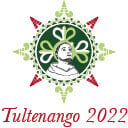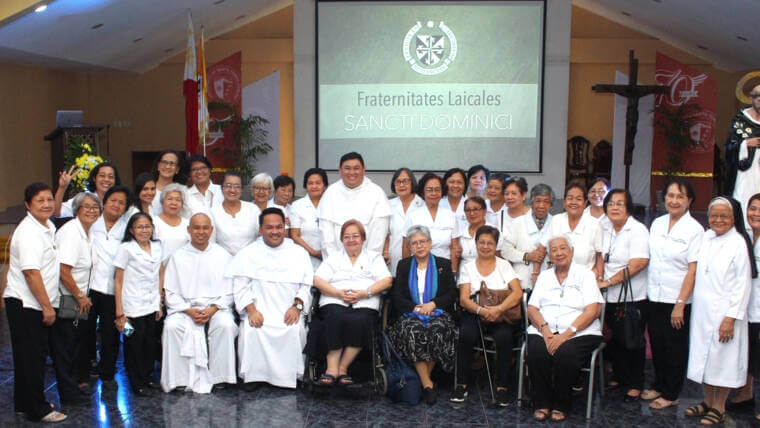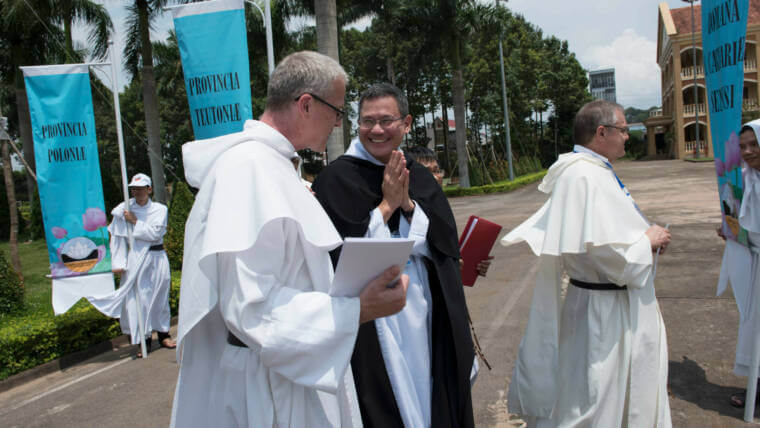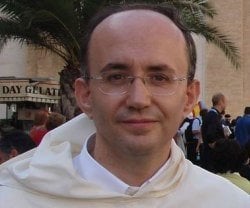Fr. Mike, the Dominican Family – especially in Spanish speaking countries – will be happy to receive a new contribution to Justice and Peace with this book. Can we still say that there are Dominicans who are dedicated to the defence of the most vulnerable? Where do we find them and who do they defend?
There remain so many Dominicans very dedicated to defending the most vulnerable – too many to list here. In the articles in the book by Sr Tina and me there is a comprehensive account of what Dominicans are doing, and almost all of these are still involved in similar and even more profound ways. Some recent examples are:

- The ongoing defence of the land rights of the people of Dominican Republic by Br. Miguel Angel Gullon, O.P., and the Dominican Family. Radio Seybo, of which Br. Miguel Angel is the Director, has recently received a prize for the defence of human rights through the media in Latin America and the Caribbean.
- The Dominican Family in the Philippines challenging the government for its involvement in extrajudicial killings, resulting in Br. Victor Calvo, O.P., receiving threats.
- Caring for vulnerable children and fighting for their rights: street children in India, juvenile prisoners in Ivory Coast, children exploited in the artisanal mines of the Democratic Republic of Congo, child victims of war in Ukraine, abandoned children of migrants in Guatemala deported from the United States, many of whom have COVID-19.
- Supporting the families of victims of massacres in Colombia as well as mediation efforts between the military and armed groups.
- Support for vulnerable migrants and victims of human trafficking in the Philippines, USA, Canada, Spain, France.
- Defending the rights of indigenous people in Peru, Mexico, Guatemala, Brazil, Philippines, India, Indonesia.
- Challenging environmental destruction in Kenya, Brazil, DR Congo, USA.
- Promoting inter-religious dialogue in Cairo and Istanbul.
In most countries, Dominicans are standing with and empowering poor and vulnerable people: women, the deaf, especially in providing education.
What are the urgent questions, addressed in the book, that challenge us in the preaching of the Dominican Family? (now and in the future)
The final statement of the Congress spells out all of the major challenges, but I can point to the following priority challenges emerging:
- Embrace as an integral part of our Dominican charism the mission of justice and peace as constitutive to the preaching of the Gospel. This is nothing new! Every day, in our Morning or Evening Prayer, we read and pray for justice and peace.
- Integrate Catholic Social Teaching and the defence of human rights into all aspects of the formation of the Dominican Family – brothers, sisters, nuns, laity, associates, priestly fraternities, youth, and other movements and members of the family.
- Promote the study of Laudato Si as a means for teaching an integral ecology that combines the well-being of humans with the whole of creation.
- Adopt and promote the Salamanca Process which calls on Dominicans, our educational institutions, and ministerial programs to direct our study, research, analysis, and action towards addressing the challenges our world faces, thus creating a passionate synergy between our intellectual and apostolic lives.
- Strengthen the Dominican presence at the United Nations by ensuring that the voices of those suffering human rights abuses are heard at the highest levels through the sharing of the Dominican family on the ground and by increasing resources dedicated to that mission and concrete justice and peace projects.
- Support those who take prophetic stands, like our early brothers and sisters, against sinful structures of power that oppress people and violate the whole of creation (John Paul II: Sollicitudo rei socialis 36-37)
Within the framework of the jubilee celebrations of our Dominican Order, “Dies Natalis” of Saint Dominic, what does the book bring to our lives?
As we prepare to celebrate the Dies Natalis of our holy father, St. Dominic, this book reminds us of what primarily motivated him – following in the footstep of Jesus. It was compassion for those suffering that burned in him, that led him to spend his life and all his energy in listening to people and touching their suffering or confusion. He was always searching for words of hope that would bring life to people. His theology and actions were never abstract. How can we do the same?
Do you have something special to say to the Dominican family?
As I come to the end of my mandate after seven years in this global mission, I thank God for the gift it has been for me. I have met so many wonderful Dominican brothers and sisters who have revealed to me God’s love and mercy. So, as I return home to South Africa, I would like to thank all the members of the Dominican Family for your faithful collaboration, patience and especially the love you have shown me over these years! You have made me proud to be a Dominican! Many thanks






